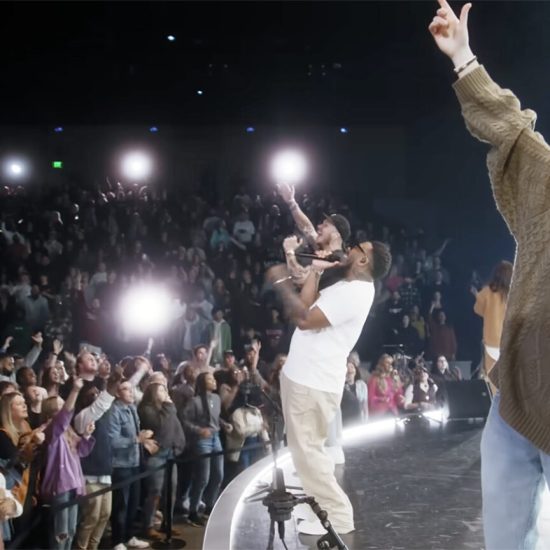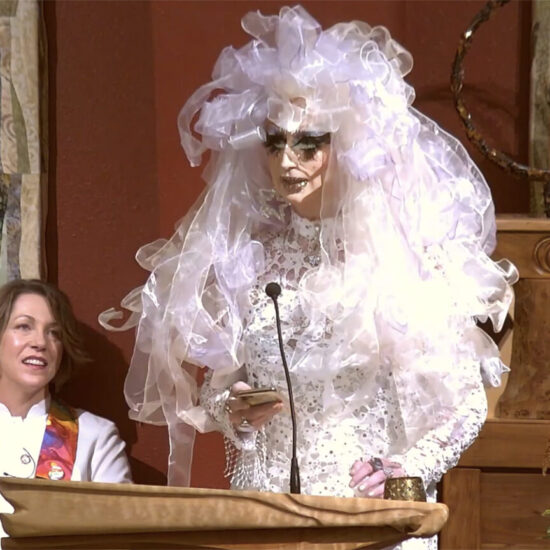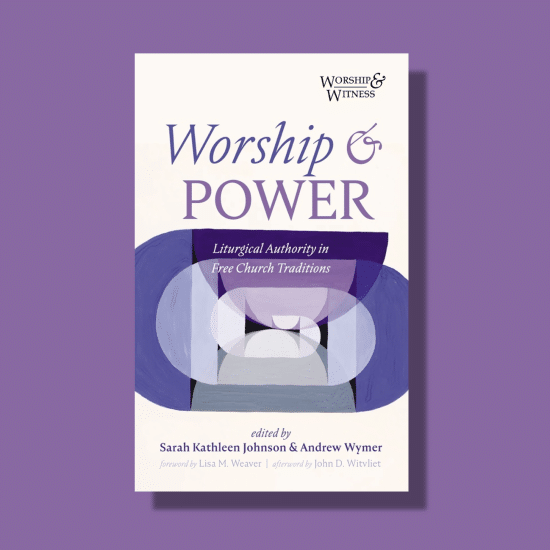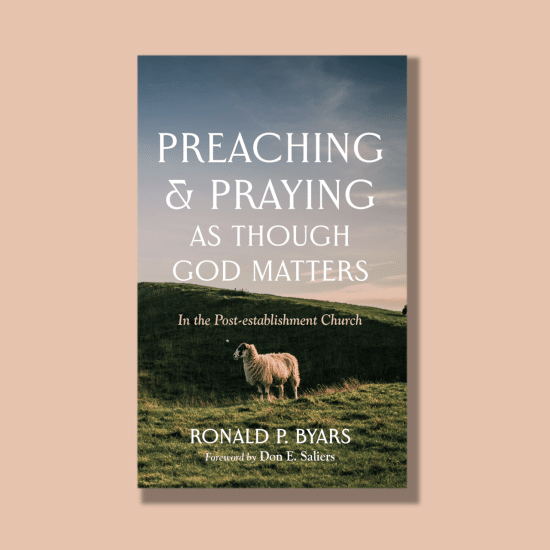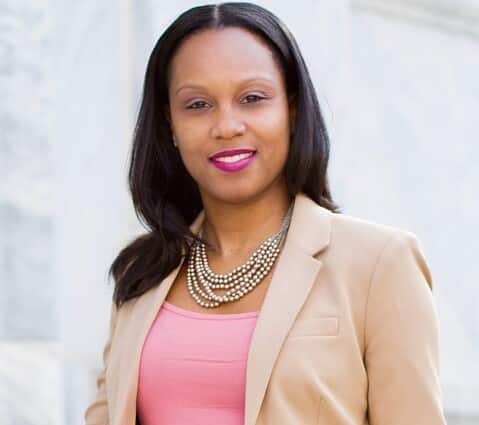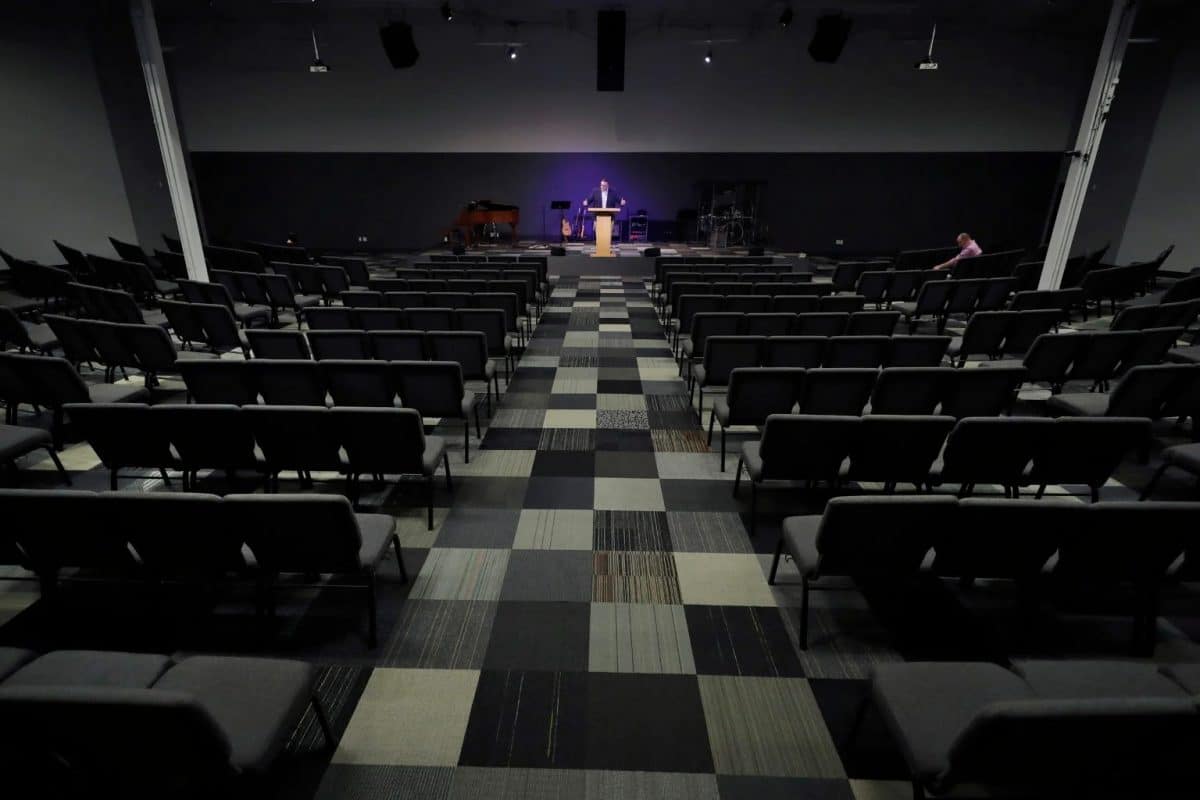
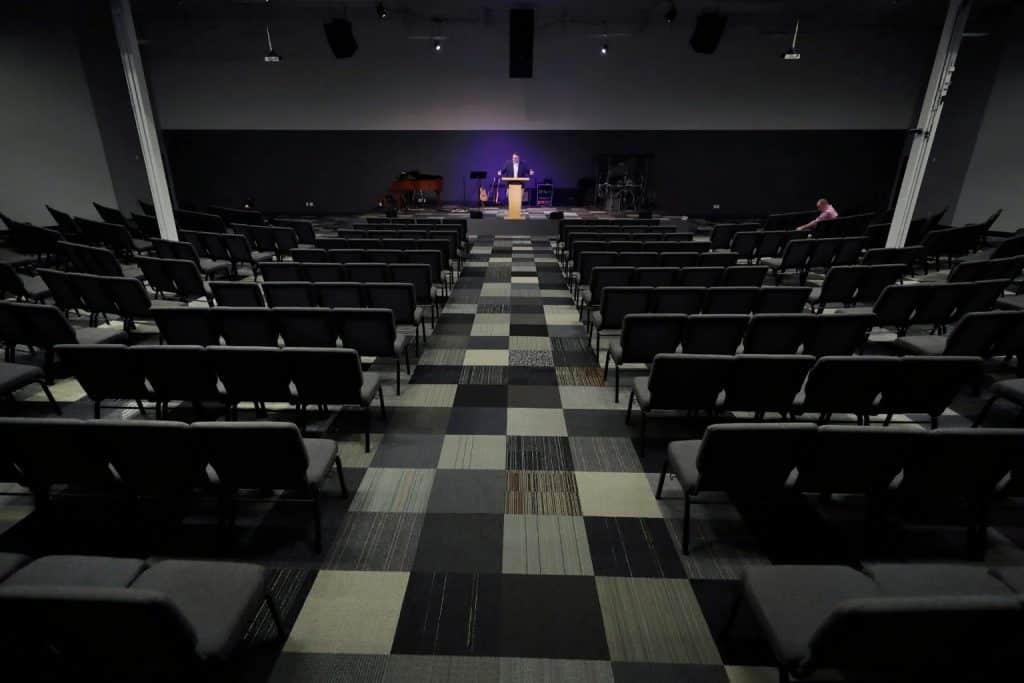
Josh Kellso, a pastor at Grace Bible Church, delivers a sermon via livesteam for virtual attenders from an empty sanctuary Sunday, March 22, 2020, in Tempe, Ariz. Many houses of worship have suspended all in-person services and programs and moved to online services in compliance with CDC guidelines to promote social distancing in the effort to slow the spread of the COVID-19 coronavirus. (AP Photo/Matt York)
(RNS) — Preachers are periodically moved to inform their congregations that the Ten Commandments are not the Ten Suggestions. Well, as part of its coronavirus reopening plan, the Centers for Disease Control came up with a few dozen suggestions for faith communities, and the White House has rejected them as commandments that infringe on religious rights.
You think I’m kidding?
To say that the CDC was at pains to make clear that its “Interim Guidance for Faith Communities” was not mandatory would be the grossest of overstatements.
Its opening paragraph states that what follows “is not intended to infringe on First Amendment rights as provided in the U.S. Constitution”; that the “federal government may not prescribe standards for interactions of faith communities in houses of worship and no faith community should be asked to adopt any mitigation strategies that are more stringent than the mitigation strategies asked of similarly situated entities or activities in accordance with the Religious Freedom and (sic) Restoration Act (RFRA)”; and that “CDC offers these suggestions that faith communities may consider and accept or reject, consistent with their own faith traditions.”
Nevertheless, the guidance was vigorously opposed by Roger Severino, the director of the Office of Civil Rights of the Department of Health and Human Services, according to The New York Times.
“Protections against religious discrimination aren’t suspended during an emergency,” Severino said in a statement. “This means the federal government cannot single out religious conduct as somehow being more dangerous or worthy of scrutiny than comparable secular behavior.”
Did I mention that Severino used to be chief operating officer and legal counsel for the Becket Fund for Religious Liberty, which last month filed an amicus brief in support of a church in New Mexico that is challenging the governor’s order limiting religious gatherings to no more than five people?
OK, so let’s take a look at the religious conduct the CDC singled out (as opposed to giving generic guidance such as to “(e)stablish and continue communication with local and State authorities to determine current mitigation levels in your community”).
There is: “Continue to provide congregants with spiritual and emotional care and counseling on a flexible or virtual basis, or refer them to other available resources.” And: “Limit the size of gatherings in accordance with the guidance and directives of state and local authorities and in accordance with RFRA.”
Congregations are also asked to “(c)onsider video streaming or drive-in options for services” and told, “If appropriate and possible, add additional services to weekly schedules to maintain social distancing at each service, ensuring that clergy, staff, and volunteers at the services ensure social distancing to lessen their risk.”
Plus:
- “Consider holding services and gatherings in a large, well-ventilated area or outdoors, as circumstances and faith traditions allow.”
- “Space out seating for attendees who do not live in the same household to at least six feet apart when possible; consider limiting seating to alternate rows.”
- “Consider whether other gatherings may need to have attendance limited or be held virtually if social distancing is difficult, such as funerals, weddings, religious education classes, youth events, support groups and any other programming.”
- “Avoid or consider suspending use of a choir or musical ensemble during religious services or other programming, if appropriate within the faith tradition. Consider having a soloist or strictly limiting the number of choir members and keep at least six feet between individuals.”
- “Consider having clergy hold virtual visits (by phone or online) instead of in homes or at the hospital except for certain compassionate care situations, such as end of life.”
- “Limit community sharing of worship materials and other items.”
- “Consider temporarily limiting the sharing of frequently touched objects, such as worship aids, prayer books, hymnals, religious texts and other bulletins, books or other items passed or shared among congregants, and encourage congregants to bring their own, if possible, photocopying, or projecting prayers, songs, and texts using electronic means.”
- “Modify the methods used to receive financial contributions. Consider a stationary collection box, the mail, or electronic methods of collecting regular financial contributions instead of shared collection trays or baskets.”
- “Consider mitigating the risk of transmitting COVID-19 posed by close physical contact among members of the faith community during religious rituals as well as mediated contact through frequently touched objects, consistent with the community’s faith traditions and in consultation with local health officials as needed.”
- “If food is offered at any event, have pre-packaged boxes or bags for each attendee whenever possible, instead of a buffet or family-style meal.”
- “Avoid food offerings when it is being shared from common dishes.”
Even if all these “considers” were turned into imperatives, the government should have the power to enforce them. Yes, some implicate conduct that is demonstrably religious. Taking communion. Passing the offering plate. Why, in some denominations, covered-dish lunches amount to a sacrament.
But the federal RFRA says that the government can override religious free exercise if it has a compelling interest and enforces that by the least restrictive means. Ritual cannibalism? Nope. Handling dangerous reptiles? Sorry. And that hug of peace delivered during a pandemic to the person who happens to be sitting down the pew from you? I don’t think so.
In fact, when U.S. District Judge John Broomes issued a temporary restraining order last month allowing a couple of churches in Kansas to hold in-person services in contravention of Gov. Laura Kelly’s executive orders, he mandated that, among other things, attendees be advised to avoid physical contact and that there be no passing of the offering plate.
The Trump administration, however, does not want to be accused of even suggesting that communities of faith change their behavior in order to mitigate the threat of COVID-19. It’s almost as if they’d like churchgoers to become infected.

